What’s the Buzz
The Bee Healthy Blog
Why Do I Bruise So Easily? 11 Possible Explanations

Most people bruise multiple times during their lifetime. A bruise can occur in response to an injury or due to underlying health conditions. Most bruises are minor and not something to worry about. Minor bruises usually heal on their own and don’t need any treatment. Large and painful bruises, however, can take several weeks to heal.
Some people find they are bruising frequently. Others notice they have easy bruising after a minor bump. Yet others develop unexplained bruising that appears seemingly out of thin air. These can all be signs of an underlying health condition. If you are wondering why you bruise so easily, please continue reading for some possible explanations.
What is a bruise?
A bruise (medical term: ecchymosis, pronounced ek-eh-moh-sis) is a reddish mark or a black and blue mark that develops under the skin’s surface when there is a break in the blood vessel walls. It forms when blood leaks from tiny blood vessels in the skin. The leaked blood pools around the small blood vessels. But unless the skin is broken, there is no external bleeding.
As bruises heal, they can change color and become dark blue or purple patches. They can even become black, brown, or yellow as different parts of blood get broken down, and the body reabsorbs them.
There can be other types of blood collection under the skin. For example, a hematoma is a large raised, painful pool of blood. Purpura is smaller in size compared to ecchymosis. Petechiae are pinpoint reddish areas in the skin (these can be difficult to see in dark-colored skin).
What is the most common cause of easy bruising?
Minor injuries and accidents, such as falls, bumping into things, and dropping something heavy on your body, are the most common causes of bruising. Bruises are also a common symptom following sports injuries. However, frequent bruising, easy bruising, large bruises, slowly healing bruises, or unexplained bruises can be signs of underlying health conditions, such as hematological diseases.
What can cause unexplained bruises?
Age
Older adults bruise more easily than younger people due to thinning of the skin and a loss of the cushioning fatty layer around the blood vessels. Chronic sun exposure can lead to senile purpura and actinic purpura.
Vitamin deficiencies
Vitamin K deficiency, vitamin C deficiency, or vitamin B12 deficiency can affect the blood’s ability to clot and cause easy bruising and bleeding.
Blood thinners
If blood clots form in unbroken blood vessels, they can be dangerous. Blood thinning medications (anticoagulants) and anti-platelet drugs are prescribed to prevent clots from forming or stop blood clots from becoming larger. People who take blood thinners can develop more severe bruises or bruise more easily. Examples of blood thinners include warfarin, heparin, dabigatran (Pradaxa), rivaroxaban (Xarelto), and apixaban (Eliquis).
Other medications
Certain medications, such as nonsteroidal anti-inflammatory drugs (aspirin, ibuprofen, naproxen), can affect the body’s ability to form clots and cause easy bruising. Steroid medications such as prednisone can cause thinning of the skin, and people taking these medicines may notice that they tend to bruise more easily. Certain chemotherapy drugs can lead to low platelet levels and increase the risk of bruising and bleeding.
Dietary supplements
Certain over-the-counter dietary supplements such as ginseng, ginkgo, and fish oil can affect normal platelet function and cause you to develop bruises easily.
Bleeding disorders
When the walls of blood vessels get broken, bleeding occurs. The formation of a blood clot is necessary to stop bleeding. Certain substances in the blood are needed for the blood to clot. In people with inherited bleeding disorders such as hemophilia and von Willebrand disease, the blood does not form clots due to a deficiency of blood-clotting substances. The inability to form blood clots can lead to easy bruising, spontaneous bleeding, or excessive bleeding following injuries or surgery.
Low platelet counts
Platelets are blood cells that help the body form clots and stop bleeding. Low platelet counts in the blood (this is called thrombocytopenia) can lead to bruising easily.
Heavy alcohol use and liver disease
The liver makes coagulation factors that are needed to stop bleeding. Heavy alcohol use can damage the liver, leaving it unable to make these important proteins. People with an underlying health condition such as cirrhosis or other types of liver disease can also develop easy or frequent bruising.
Blood cancer
People with a blood cancer such as leukemia have a high number of abnormal white blood cells. These blood cells crowd out other healthy blood cells, such as platelets which are needed for blood clotting. This can result in petechiae (pinpoint red spots) under the skin’s surface, easy bruising and bleeding, and other symptoms in the skin.
Vasculitis
Vasculitis is an inflammation of the blood vessels. It can be of various types, such as Kawasaki disease, giant cell arteritis, Takayasu’s arteritis, Behcet’s disease, and others. These are relatively rare medical conditions, but they can cause bleeding under the skin (petechiae or red spots).
Domestic violence
Bruises are the most commonly seen signs of physical abuse, including violence against women, child abuse, and elder abuse. The bruises often have tell-tale patterns, such as ligature marks or grip marks. The location of the bruises can also provide clues.
What is lacking when you bruise easily?
A vitamin deficiency (lack of vitamin K or vitamin C) can make you bruise easily. In people with inherited bleeding disorders, coagulation factors are lacking, which leads to easy bruising and bleeding.
What causes females to bruise easily?
The same medical conditions can cause females and males to bruise easily. However, females with underlying health conditions that cause easy bruising may notice heavy menstrual bleeding.
Does low iron make you bruise easily?
Low iron can lead to a lack of healthy red blood cells, which carry oxygen to all the tissues of the body. This can affect the health of other types of blood cells, such as platelets which are needed for blood clotting. They can also affect skin health, making it bruise more easily.
How do doctors diagnose the cause of easy bruising?
Doctors diagnose the cause of easy bruising by obtaining a thorough personal and family medical history and performing a physical exam. They may ask you to provide a list of all your medications to identify possible culprits. Your provider may order blood tests to check for vitamin deficiencies and clotting abnormalities. They may also order imaging studies to check for severe internal injuries.
What is the treatment for bruises?
Most bruises heal on their own. The treatment for easy bruising consists of finding and treating the underlying cause. For example, if your doctor finds that a medication is causing you to bruise easily, they may discontinue it or replace it with another medication. On the other hand, if you need to continue taking the medicine to treat another health condition, your doctor may allow you to do so with precautions to prevent bruising.
When to see a doctor for easy bruising?
Small bruises on the arms and legs are not uncommon and usually disappear without any specific treatment within 1-2 weeks. You should seek medical attention if:
- You have a large bruise that is not improving after a week.
- A bruise continues to be painful after 3 days.
- You notice a raised lump at the site of an injury (this might be a collection of blood called a hematoma).
- The bruise is located on a part of your body that is unlikely to be injured, such as your face or torso.
- Your bruises are recurrent, large, painful, frequent, unprovoked, unexplained, or occur in response to minor trauma.
- You have a history of frequent nosebleeds, excessive bleeding after surgery, blood in the urine or stool, or bleeding in unusual places such as your muscles, joints, or brain. Your doctor may order tests to check for an inherited blood disorder.
- Other people in your family also have a health history of easy bruising.
- You suspect a loved one’s bruises are caused by physical abuse.
What are some home remedies for minor bruises?
To help a bruise heal faster, place an ice pack in a thin towel and apply it to the affected area several times a day. Do this for 20 minutes at a time during the first 24-48 hours. Also, elevate the body part above the level of your heart as much as possible. After two days, you can apply a warm compress or a heating pad several times a day. An elastic bandage over the bruise can help reduce swelling, but make sure it is not too tight. If you want to take over-the-counter pain medication, take acetaminophen (check with your doctor before taking aspirin or ibuprofen).
How to prevent bruising?
- Lower your risk of bruising due to falls by removing tripping hazards from your home and workplace.
- Avoid keeping furniture near doorways and in hallways to prevent bumps.
- Keep a light on poorly lit areas to avoid bumping into things.
- Eat a healthy diet to prevent vitamin deficiencies.
- Wear appropriate protective gear, such as helmets and pads, when playing sports or participating in recreational activities.
References:
- https://my.clevelandclinic.org/health/diseases/15235-bruises
- https://health.clevelandclinic.org/do-you-bruise-easily-when-to-get-it-checked/
- https://www.bhf.org.uk/informationsupport/heart-matters-magazine/medical/ask-the-experts/bruises-from-blood-thinners#:
- https://www.cancer.gov/about-cancer/treatment/side-effects/bleeding-bruising
- https://www.hopkinsvasculitis.org/vasculitis-treatments/prednisone/
- https://www.icmec.org/wp-content/uploads/2015/10/Basics-of-Physical-Abuse-Bruises.pdf
- https://www.ncbi.nlm.nih.gov/pmc/articles/PMC6136435/#
- https://www.mayoclinic.org/diseases-conditions/vasculitis/symptoms-causes/syc-20363435
- https://www.mayoclinic.org/first-aid/first-aid-bruise/basics/art-20056663

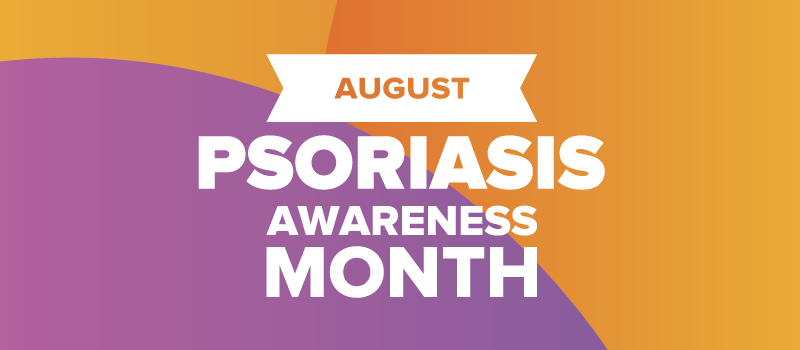


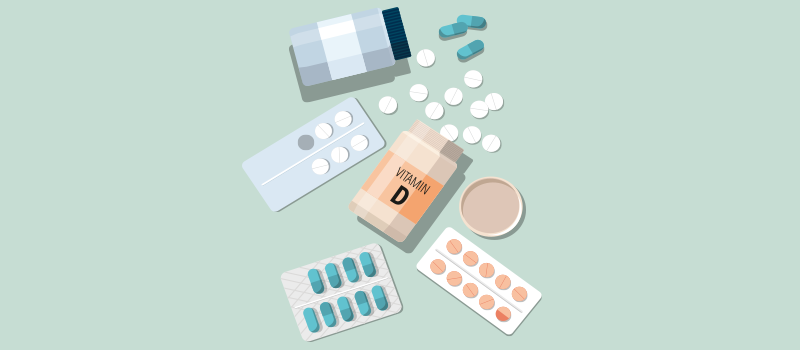

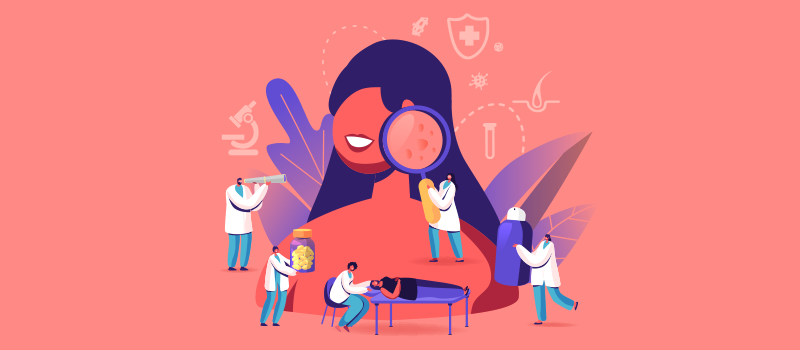
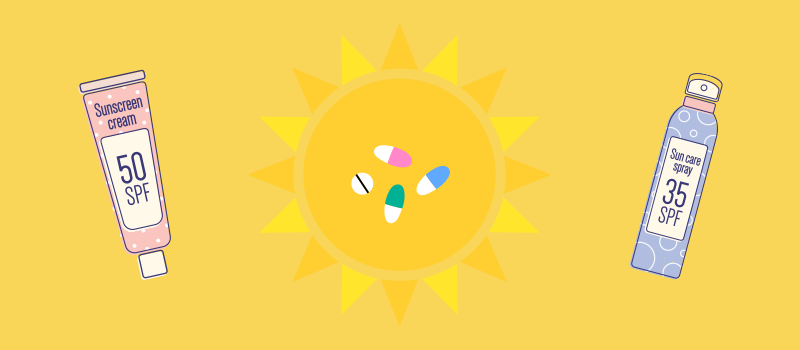


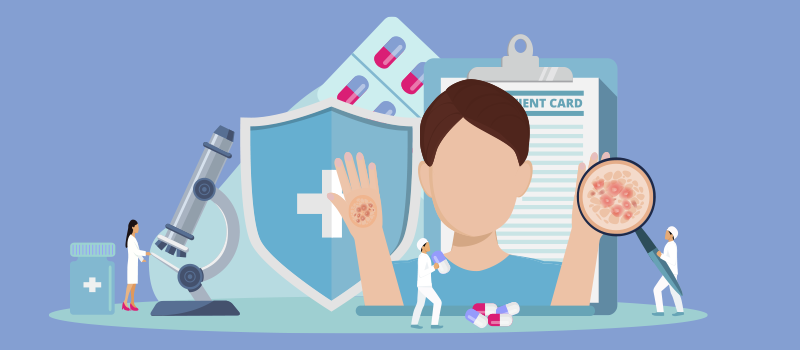

SOCIAL